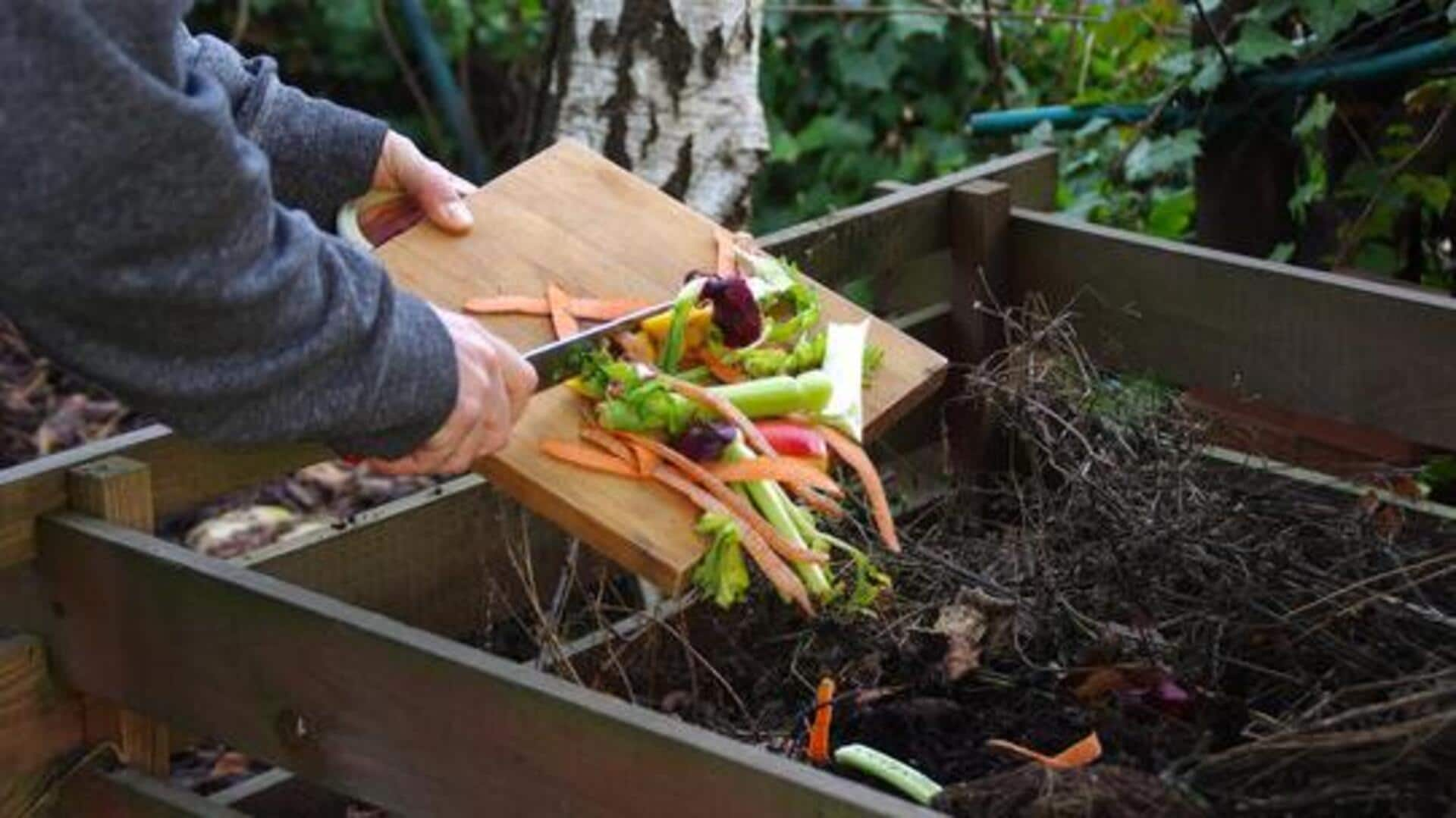
How to turn kitchen waste into manure
What's the story
Using kitchen waste as a natural fertilizer not only nourishes plants but also cuts down on household waste. This sustainable gardening method keeps soil healthy by converting kitchen scraps into nutrient-rich compost. It gives plants essential nutrients without chemical fertilizers, making it an eco-friendly and cost-effective choice for gardeners looking to boost plant growth naturally.
Vegetable peels
Composting vegetable peels
Vegetable peels are loaded with nutrients such as potassium and phosphorus, which are essential for plant growth. To use them as fertilizer, gather peels of vegetables like potatoes, carrots, and cucumbers. Decompose them in a compost bin or pile over a few weeks. Once fully decomposed, the compost can be mixed into garden soil or used as mulch around plants to enrich soil quality and fertility.
Coffee grounds
Coffee grounds for acid-loving plants
Coffee grounds are especially good for acid-loving plants such as roses and blueberries, because of their slightly acidic nature. They also contain nitrogen, which encourages leafy growth. To use coffee grounds as fertilizer, just sprinkle them around the base of your plants or mix them into the topsoil. Avoid overusing coffee grounds; applying too much can cause excessive acidity in the soil.
Eggshells
Eggshells for calcium boost
Calcium carbonate makes an amazing source for strengthening plant cell walls and preventing blossom end rot in tomatoes and peppers. To use them as fertilizer, rinse them well and dry them out completely. Crush them into small pieces or grind them into a fine powder before sprinkling around your plants or mixing with the potting soil.
Banana peels
Banana peels for potassium enrichment
Banana peels are loaded with potassium, an important nutrient that promotes root growth and plant health. To use banana peels as fertilizer, chop them into small pieces and bury them near the roots of your plants, or toss them directly into your compost pile. As they break down, they release potassium along with other trace minerals to promote plant growth.